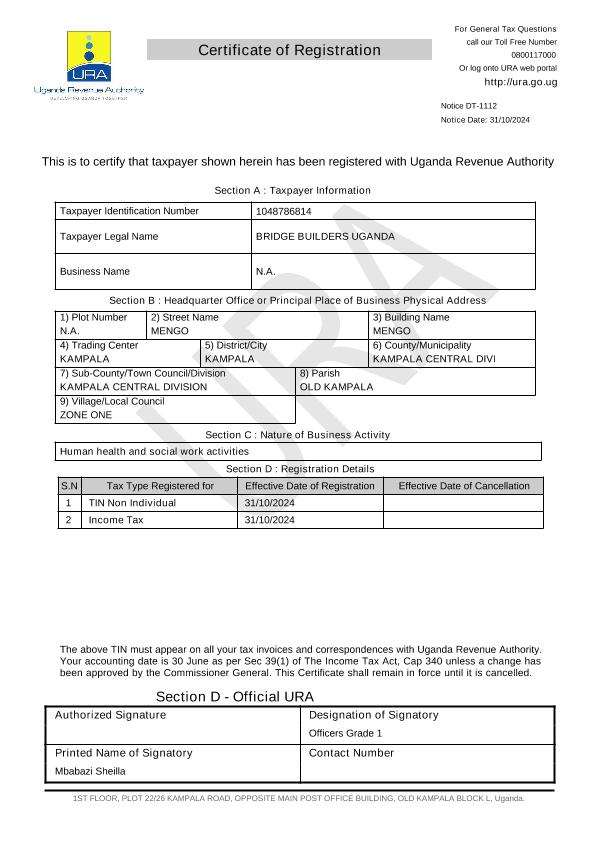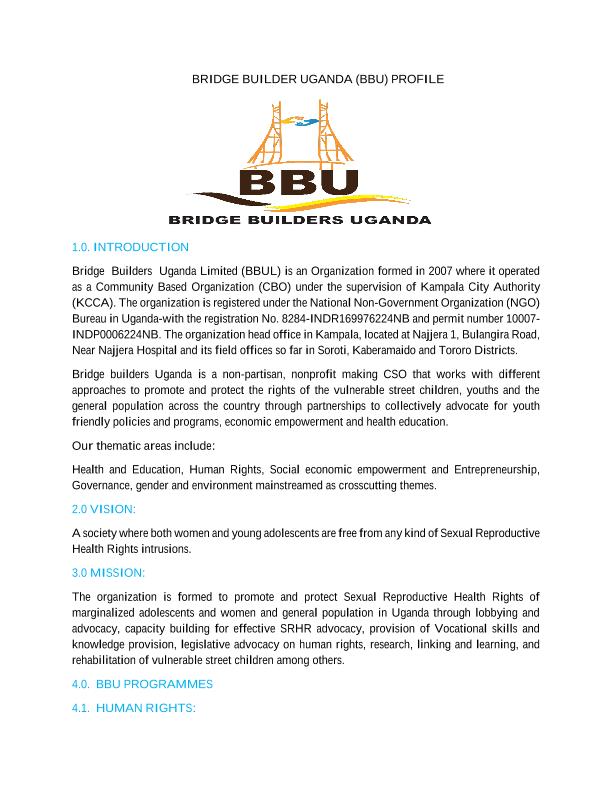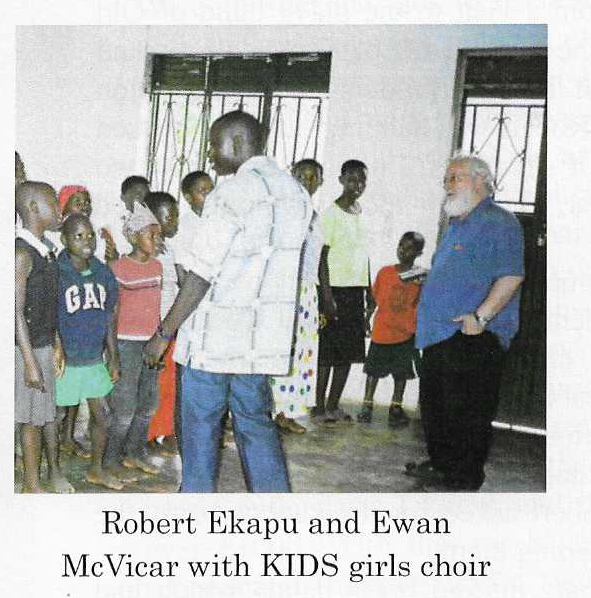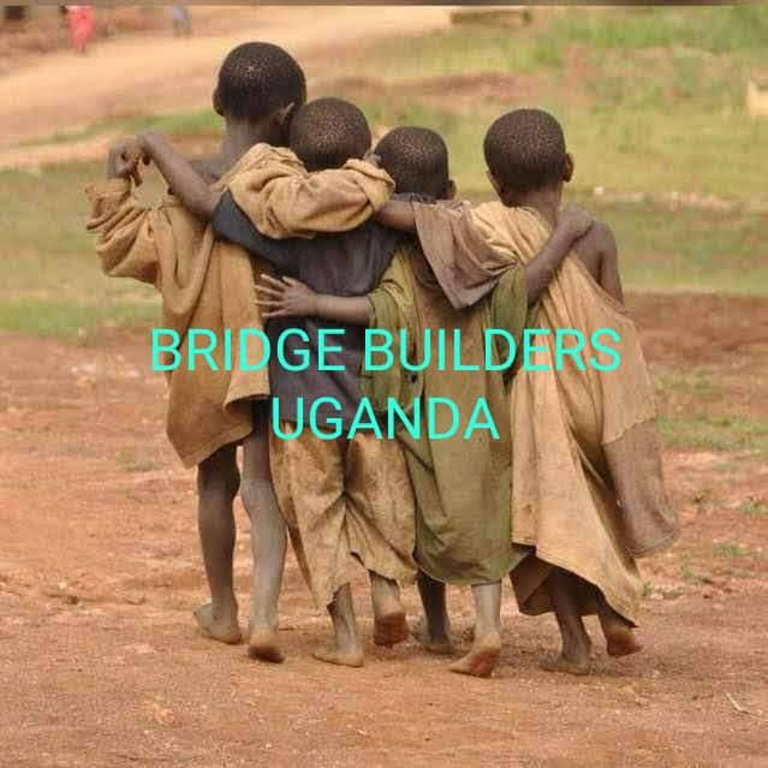Empowering Communities Through Education
Bridge Builders Uganda supports vulnerable children and women through health initiatives and local projects, collaborating with communities and partners to create lasting change.






BRIDGE BUILDERS UGANDA: STRATEGY SUMMARY DOCUMENT
Background
Bridge Builders Uganda (BBUL) is a non-partisan, nonprofit making Civil Society Organisation (CSO) committed to improving communication, relationships, trust and understanding among groups and individuals through dialogue, negotiation and consensus building by constructing meaningful partnerships that cut across conflict and misunderstandings. Its main areas of intervention are to promote and protect the rights of vulnerable persons largely living in deprived situations where there is lack of opportunity such as street children urban and rural refugees, orphans and vulnerable children (OVCs), single parents, mainly through building bridges of partnership and understanding using a strong Social and Behavioural Change methodology, participatory community empowerment, health education, and advocacy.
It has a special focus on sexual and reproductive health as well as on three main disease conditions more prevalent in more vulnerable populations in Uganda namely, Malaria, tuberculosis (TB), and HIV/AIDS. BBUL’s interventions are mainly premised on a human rights approach that includes active participation, non-discrimination, empowerment, and accountability. This is undertaken through a Universal Health Coverage (UHC) framework. UHC means that everyone can obtain the health services they need without suffering financial hardship
BBUL was first established in 2007 as a Community-Based Organization (CBO) working closely with Kampala Capital City Authority (KCCA). The organization is registered under the National Non-Government Organization (NGO) Bureau in Uganda with a registration Number: 8284-INDR169976224NB and permit number 10007- INDP0006224NB. Its head office is located in Kampala, at Najjera 1, Bulangira Road, Near Najjera Hospital, with field offices in Soroti, Kaberamaido, and Tororo Districts.
VISION
A Uganda where every vulnerable woman, man, and child is free from Sexual Reproductive Health Rights (SRHR) exploitation and common communicable and preventable diseases.
MISSION
To promote and protect the SRHR of vulnerable people in Uganda and to reduce their susceptibility to preventable diseases such as malaria, TB, and HIV through community empowerment, effective and targeted advocacy, provision of vocational skills, and focused research.
CORE VALUES
Professionalism; transparency; integrity; collective action and responsibility; mutual respect and accountability
Its thematic areas include: Health and Education, Human Rights, Social economic empowerment. Entrepreneurship, Governance, gender, and environment are mainstreamed as crosscutting themes.
PAST EXPERIENCE IN IMPLEMENTING SIMILAR INITIATIVES
BBUL has experience in carrying out similar initiatives. It has worked with the Kampala Capital City Authority (KCCA) in the past and has also worked in partnership with the Ministry of Health on similar undertakings such as malaria prevention and treatment services; HIV counseling and testing services; screening for cancers and other Non-Communicable Diseases (NCDs); reproductive health services. BBU has worked with Gallus Studio run by Mr. Ewan since 2007. BBUL has also worked in partnership with The AIDS Support Organisation (TASO) and the Ministry of Health (MOH) to facilitate regional training on human rights, gender, and equity to improve access to quality malaria services at health facilities and in the community by everyone in the community including vulnerable, marginalized, hard to reach populations.
It has an office location from where much of the planning and strategizing takes place. It also has the necessary equipment such as computers, cameras, and the like.
BBUL: STRENGTHS, WEAKNESSES, OPPORTUNITIES, THREATS
STRENGTHS
WEAKNESSES
Strong on digital approaches e.g., Twitter, Facebook, YouTube, Tik Tok. Online distribution of IEC materials
Inadequate financial resources
Strong skills in communication and marketing using different approaches, e.g., messaging, brochures, uniforms, use of ICT
Inadequate use of all available information, technologies and innovations
Flexible, adaptable communication methods in line with market demand
Registered, legal organization with organizational structure and staff
Insufficient office equipment
Strong partnerships and networks e.g., Gallus studios-UK, Mr. Ewan, , CSBAG; Children At Risk Action Network (CRANE), Malaria and Childhood Illness Network Secretariat (MACIS); The AIDS Support Organisation (TASO)
MoH: National TB & Leprosy Program; AIDS Control Program (ACP)/Stakeholders’ Forum on Condom Use; Health Promotion, Education & Communication Technical Working Advocacy Communication & Social Mobilization Forum (ACSM); YADNET; Malaria Forum Uganda; Malaria Youth Coalition Uganda; National Malaria Control Division; Malaria Free Uganda
Malaria Consortium Uganda; Reproductive Health Uganda (RHU); CEHURD; Human Rights Defenders; Adult Vaccine Access Coalition (AVAC); Consortium of Street Children International; Impact Uganda;
Inadequate skills of some staff
Experience and skills in Health Advocacy
Insufficient means of transport for field staff
Good training and mentorship capacity on Human Rights, Gender & Equity
Experience working with women groups, schools and out of school youth
OPPORTUNITIES
THREATS
Large number of partner organizations including CSOs, government, etc.
Shrinking funding from internal and external donors/sources
Relatively limited knowledge concerning SRH Rights, malaria, TB and HIV especially among vulnerable populations
Shrinking civic space by human rights actors
Existence of modern digital technology to reach different stakeholders
Restrictive policy environment concerning SRHR through annual registration for licenses
Existence of pre-tested and approved IEC materials from the MoH
Political uncertainty in the political season
Working with various educational institutions
Inadequate supervision of CSOs by the umbrella organizations, e.g. National NGO Forum
Existence of supportive policies, guidelines and laws
Changing climate
Cooperation with the local community
Increasing influx of refugees
Celebration of national days (HIV, malaria, TB)
Government willingness to partner with BBUL
Ability to leverage local funding from MDAs, and the private sector
BBU GOVERNANCE AND OPERATIONAL STRUCTURE
BBU’s MAIN AREAS OF FOCUS
4.1. THE HUMAN RIGHTS APPROACH:
This focuses on the promotion and protection of vulnerable people’s Sexual Reproductive Health Rights (SRHR) through national and international legislative advocacy with a strong gender-focused lens. It also includes Capacity strengthening on SRHR advocacy, Partnership and linking, Research on SRHR issues, making referrals for adolescents to SRHR facilities, etc.
4.2. YOUTH AND WOMEN EMPOWERMENT
This involves the direct provision of skills and knowledge for the youths through, music dance drama, crafts, entrepreneurship, pieces of training, and linking the youth with government programs.
4.3. ORPHANS AND VULNERABLE CHILDREN PROGRAMME
This basically focuses on work around the rehabilitation of orphans and other vulnerable children and this involves different interventions such as street outreaches, referral of street children and, counseling, the health of children, and integration. Nutrition, and follow-ups.
4.4. BUILDING STRATEGIC PARTNERSHIPS
BBUL will work closely with both stakeholders in the public as well as private sectors. This will include the Ministry of Gender Labor and Social Development (MOGLSD), tertiary institutions such as Makerere University (MUK), and other likeminded institutions
4.5 INCREASING THE UPTAKE OF VOCATIONAL SKILLS
This focuses on imparting street children, youths, and women knowledge of vocational skills such as tailoring, fabrication, carpentry, joinery, brick making, electric wiring, molding, visual arts, etc. This contributes to the vulnerable gaining financial health to improve overall welfare against diseases such as TB, malaria, and HIV.
4.6 RESOURCE MOBILISATION AND CARRYING OUT RELATED CONSULTANCIES
Resource mobilization through proposal writing for donor funding, supporting women cooperative groups; in-kind contributions; private sector through Corporate Social Responsibility (CSR); church donations; Music Dance & Drama festivals;
Carrying out consultancies in different areas such as SRHR; policies on vulnerable groups including OVCs; advocacy and communication for fellow CSOs; Consultancies on SBCC.
4.7 Human Rights and Gender Mainstreaming
Equality between women and men, girls and boys is a prerequisite for human development. Women's and girls’ rights are human rights. BBU will ensure HRGE is mainstreamed into all the activities. Staff and Board will be trained to understand and appreciate gender equality. Staff will also be trained in gender analysis and programming to enable them to integrate gender issues in all BBU programs. Gender analysis tools for human rights will be developed to guide the integration and mainstreaming of gender issues.
4.8 Monitoring and Evaluation Plan
A detailed monitoring and evaluation log frame has been developed and is presented as a separate document. The M&E plan document is a living document that will be reviewed and updated during the first year of implementation of the strategic plan. The framework has been elaborated and appropriate tools will be developed for monitoring implementation.
UNIVERSAL HEALTH COVERAGE (UHC) AND TB, MALARIA AND HIV
The strategy of BBUL is to implement initiatives within the national and international framework and contribute to the attainment of the Sustainable Development Goals (SDGs). This will include working with like-minded entities to contribute to Uganda’s Vision 2040, the National Development Plan, and Universal Health Coverage with a special focus on TB, HIV, and malaria, as well as on SRHR.
UBERCULOSIS (TB)
Uganda is a TB priority country. It is one of the 30 countries with the highest burden of TB/HIV. The tuberculosis (TB) epidemic is strongly influenced by broader social and economic development. According to the World Health Organization (WHO), some key health-related risk factors predispose someone to contract TB. In Uganda, more cases of TB are linked to HIV infection, alcohol use disorders, and undernutrition, while relatively fewer to smoking, and/or diabetes.
Relatedly, TB in Uganda is also linked to poor access to clean cooking fuels and greater use of dirty fuels such as firewood, and lower access to clean technologies such as electricity or gas; a high percentage of the population living in poverty; low access to social protection; and the urban population living in slums, with more than 50% of urban dwellers living in slums or informal settlements. Furthermore, there is a high percentage of people in Uganda with undernutrition, and income inequality is also on the increase[1].
The proportion of multidrug-resistant tuberculosis and rifampin-resistant TB among new and previously treated TB cases is also on the increase, and the treatment success rate is below the national target. In response, the Government of Uganda gave the Ministry of Health, through the National Tuberculosis and Leprosy Programme (NTLP), a mandate to bring the disease under control by means of providing high-quality prevention, diagnosis, and treatment services to affected Ugandans, working in collaboration with different stakeholders.
Addressing the broader social and economic determinants of the TB epidemic requires multisectoral action and accountability, including the use of a human rights approach. Target 3.8 of the United Nations (UN) Sustainable Development Goals (SDGs) is to achieve UHC by 2030 (2). The indicators and targets for reduction in TB incidence and TB mortality as set out in the WHO End TB Strategy can be realized only if everyone who develops TB disease can access high-quality treatment.
MALARIA
Malaria remains a devastating global health issue, infecting hundreds of millions annually. Uganda remains a malaria endemic area where the disease is still prevalent and affect more vulnerable populations, though various initiatives have been introduced in recent years to curb its prevalence. Malaria is caused by Plasmodium parasites and transmitted via Anopheles mosquitoes. Untreated, P. falciparum malaria can cause severe complications like cerebral malaria. Diagnosis involves examining blood films microscopically or using rapid tests to detect parasites or antigens. Because of drug resistance to earlier drugs or drug combinations, it now requires newer combinations of artemisinin with other therapies for effective treatment.
HIV
The Joint United Nations Programme on HIV/AIDS (UNAIDS) estimates that 1.5 million people in Uganda are living with HIV including nearly 72,000 children under age 14 with 910000 women above 15 having HIV. In 2024, the national HIV prevalence in Uganda was estimated to be 5.1%. Women aged 15 - 49 have a prevalence of 6.6 while men aged 15- 49 have a prevalence rate of 3.6%. Orphans due to HIV are estimated at 870,000.
There are efforts in place to reach the most at-risk populations, including men who have sex with men (MSM), sex workers, and orphans and vulnerable children (OVC). However, because of the current government policy that criminalizes same-sex relationships, many of such populations are now underground and largely inaccessible to many health facilities and interventions. On the other hand, Gay, bisexual, and other men who reported male-to-male sexual contact are the population most affected by HIV. Additionally, because so much of the population is relatively young, with many in some way affected by HIV/AIDS, positive child development and protection remains a critical challenge.
There is a need to increase community and district-level capacity to identify persons infected with HIV who are not linked to care and facilitate this linkage to measure HIV prevention and treatment and work with partners such as the Ministry of Gender, Labor and Social Development (MGLSD) to implement alternative care for children, as well as to build the capacity of policymakers to use data for decision making.
SPECIFIC OBJECTIVES
1. To strengthen the capacity of BBUL in governance, leadership, programming, and resource mobilization through regular updates; training; hiring of staff; and institutional structuring
2. To increase the resource base of BBUL through different initiatives such as proposal writing; cultivation of partnerships; consultancies, Corporate Social Responsibility (CSR), etc.
3. To strengthen the partnership between BBUL and different stakeholders such as government Ministries, Departments, and Agencies (MDAs); donors, the private sector; sister CSOs; educational institutions, religious institutions; Parliament and other like-minded entities
4. To improve Communication, Empowerment, and Advocacy on Sexual & Reproductive Health & Rights (SRHR), malaria, TB/HIV-associated interventions and policies related to vulnerable persons (e.g., OVCs, street children, refugees) through various channels such as digitalization; online meetings; community awareness initiatives and the like
5. To promote research, development and documentation in BBUL on related initiatives to broaden the body of knowledge.
Contact Information
P.O. Box 14286, Mengo, Kampala – Uganda
Email: bridgebuildersugandaa@gmail.com; johnekapu3@gmail.com
Tel: +256788725954 or +256752811880
Tax payer identification No. 1048786814
Website: https://bridgebuildersuganda.com/
Tiktok: @bridgebuildersuganda
U tube: Bridgebuildersuganda
[1] https://www.who.int/teams/global-tuberculosis-programme/tb-reports/global-tuberculosis-report-2024/uhc-and-tb-determinants/5-3-tb-determinants
BRIDGE BUILDERS UGANDA
Contact Information P.O. Box 14286, Mengo, Kampala – Uganda Email: bridgebuildersuganda@gmail.com; johnekapu3@gmail.com Tel: +256788725954 or +256752811880 Tax payer identification No. 1048786814 Website: https://bridgebuildersuganda.com Tiktok: @bridgebuildersuganda U tube: Bridgebuildersuganda
STRATEGY SUMMARY DOCUMENT-2025-2030
Our Location
Bridge Builders Uganda operates in various communities across Kampala, focusing on health and social support initiatives for vulnerable populations.
Address
Kampala, Uganda, East Africa
Hours
9 AM - 5 PM
Support
Empowering vulnerable communities through education and health.
Connect
info@bridgebuildersuganda.com
00256-7887-25954
© 2024. All rights reserved.
